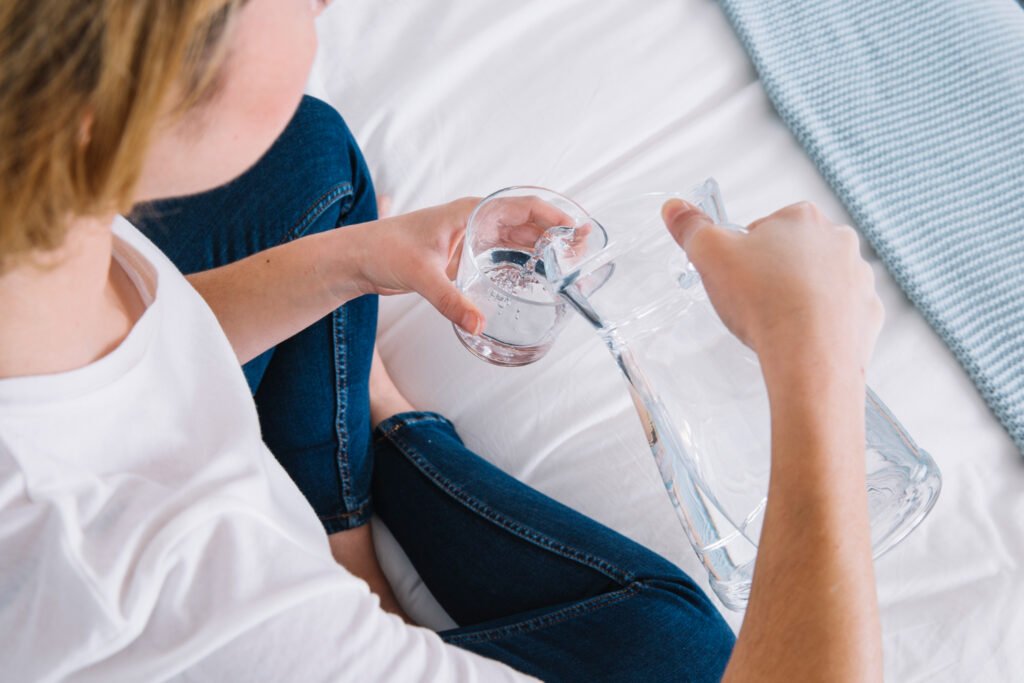
Many people wonder if carbonated water is detrimental to kidney health, particularly because it’s been rumored to contribute to kidney stones. Kidney stones are hard deposits of minerals and salts that form within the kidneys. Despite the theory, there is minimal evidence linking carbonated water to kidney stones.
Carbonated water can cause gas and bloating in the digestive tract but still helps keep you hydrated and reduces soda intake. Here’s a detailed look at how carbonated water affects your kidneys and overall health.
Impact of Carbonated Water on Kidneys
There are no double-blind, placebo-controlled studies—the gold standard in medical research—that definitively prove sparkling water causes kidney stones. While there is a theoretical risk, it remains largely unsubstantiated.
The mineral content in sparkling waters varies significantly, making it difficult to generalize their effects on kidney stone risk. Despite these differences, carbonated water typically contains standard ingredients such as sodium bicarbonate for fizz. This compound could theoretically increase kidney stone risk, as a high-sodium diet is a known risk factor. However, one glass of sparkling water is unlikely to elevate sodium levels excessively, though multiple glasses daily could pose a risk.
Some fizzy waters also contain calcium. Calcium from food does not increase kidney stone risk; in fact, it binds with oxalate—a natural substance found in food—in the intestine. Without sufficient calcium, oxalate can pass into the urine, raising the risk of kidney stones.
Causes of Kidney Stones
The connection between sparkling water and kidney stones remains unclear, but several established risk factors exist:
- Dietary Factors: Not drinking enough water, insufficient intake of fruits and vegetables, excessive dietary sodium, and high consumption of non-dairy animal protein.
- Other Factors: Being male, having a family history of kidney stones, obesity, bowel inflammation, certain kidney diseases, and specific medications such as diuretics and calcium-based antacids.
Preventing Kidney Stones
To reduce the risk of kidney stones, consider these recommendations:
- Be cautious with calcium supplements, which can increase risk.
- Drink enough fluids to produce 2 liters of urine daily.
- Follow a low-oxalate diet.
- Limit protein intake to a portion no larger than a deck of cards.
- Avoid high-sodium foods like deli meats and pre-prepared foods.
Benefits of Carbonated Water
Carbonated water offers several potential benefits. A 2022 study found that individuals under heat stress experienced increased brain blood flow, motivation, and excitement when drinking both carbonated and non-carbonated water. However, this study was small, non-randomized, and involved only healthy, young participants, so further research is necessary to confirm these benefits for the general population.
Staying hydrated is crucial for preventing kidney stones, and drinking plenty of fluids, including carbonated water, can help achieve this goal.
Tips for Enjoying Carbonated Water
There are many options for flavored carbonated waters, such as peach, key lime, strawberry kiwi, berry, and cherry. Some varieties also contain added vitamins, minerals, and caffeine for a slight energy boost.
Carbonated water is an excellent way to meet your hydration needs. However, it’s best to consume it in moderation to avoid excess gas in your digestive tract and potential damage to tooth enamel, similar to the effects of soda.
Summary
While the link between carbonated water and kidney stones is largely theoretical and unsupported by strong evidence, moderation is key. Staying hydrated is essential for kidney health, and carbonated water can be a helpful component of a balanced diet if consumed responsibly
A Quick Review
Carbonated water’s link to kidney stones is mostly theoretical. While high sodium intake can increase kidney stone risk, the calcium in carbonated water may actually help reduce this risk by binding with oxalates. Drinking carbonated water in moderation can aid in hydration and potentially lower kidney stone risk, but excessive consumption could lead to gas and bloating.











